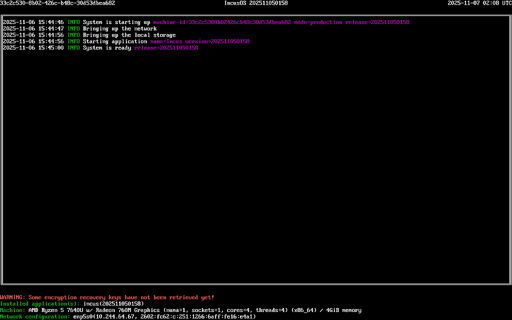I know this is supposed to be compared with Vmware ESXi &or Proxmox but exclusively made for linux containers, so…
How well can it compare with MicroOS & CoreOS which rely podman instead?
I’ve never seen a detailed comparison between podman & incus in term of resource usage nor performance, just that podman supports docker compose & it’s images.IncusOS supports OCI containers, which means it can run most docker containers natively. And LXC, and vms via QEMU/KVM.
Though perhaps it is important to make the distinction clear:
Incus is the software that supports running OCI and LXC containers, and VMs. It is the functional equivalent to the Proxmox virtualisation suite, storage, network, image and container management and also the management web UI.
IncusOS tries to support this program for your bare-metal servers by providing an immutable OS underneath which hosts Incus but cannot be reached via shell access at all. It intends to form a super locked-down base from which to use Incus, but which also comes with preinstalled goodies such as ceph, linstore, zfs, and some service setups (afaik).
So the closest comparison to Proxmox currently is a simple Incus installation on a Debian bare-metal host. IncusOS I would argue is actually moving further away from that comparison with its locked down base and immutable nature.
In a way the project reminds me much more of TalosOS which creates a similarly locked down base environment to work with Kubernetes on top.


